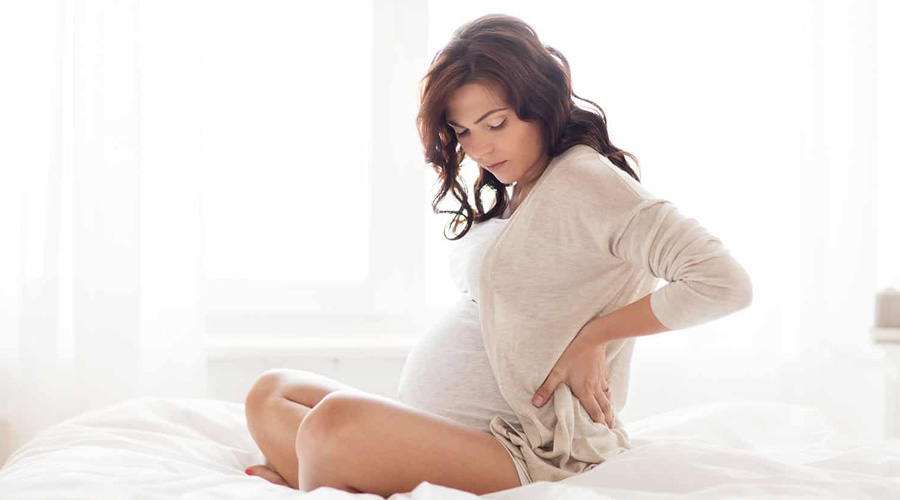Sleep deprivation during pregnancy has been linked to smaller babies, more preterm births, and increased rates of stillbirth. Thus, pregnant women need to get restful sleep. Sleep during pregnancy is important for both the mother and the baby. A good sleep habit during the early months will help ensure a healthy pregnancy outcome. One good habit is to find the best sleeping position. There are a few positions that have been shown to be the least harmful for both the woman and the unborn child. In this article, we will give you tips on how to get the best out of your sleep during pregnancy.
Why is sleep so important during pregnancy?

Sleep during pregnancy is essential for both the mother and baby. Proper sleep helps the body to repair itself, strengthens the immune system, and facilitates healthy growth. Babies who get enough sleep during the early stages of development are more likely to be healthy and have normal psychological development. Mothers who get enough sleep during pregnancy are more likely to have healthier babies.
Sleeping positions in pregnancy

There are many different sleeping positions that expectant women can try in order to get the best sleep possible. Some common sleeping positions include: on your side, on your back, partially on your back and partially on your stomach, and lying on your stomach. It is important to find a comfortable position that allows you to rest your head and neck in a neutral position.
Sleeping on your left or right side during pregnancy

Sleeping on your left or right side during pregnancy has been shown to be beneficial for both you and your baby. Sleeping on your side allows your baby to rest against your womb, which can help them develop properly and avoid health problems in the future. Additionally, sleeping on your side may reduce the risk of pregnancy-related hypertension and other pregnancy-related issues. If you are unsure which side is best for you, speak with your doctor.
Sleeping on your stomach during pregnancy

Sleeping on your stomach during pregnancy has been shown to be both safe and effective for many women. This is especially true if you are experiencing back pain or other issues that prevent you from sleeping on your side. There are a few things to keep in mind when sleeping on your stomach:
- Make sure the bed is comfortable and the pillow is high enough so that your head doesn’t rest on the mattress.
- The side of the pillow that is on your belly should be higher than the other side. Don’t use a pillow under your knees.
- it can cause a tilted pelvis and back pain. Placing a pillow or two under your knees may help, but it’s not necessary.
Sleeping on your back during pregnancy

Many women sleep on their back during pregnancy because it is the most comfortable position. However, there are a few reasons why sleeping on your back may not be the best decision for you. Sleeping on your back can increase your risk of experiencing adverse pregnancy outcomes such as developing a spinal cord injury, and it can also increase your risk of late pregnancy and developing gestational diabetes. If you are pregnant and decide to sleep on your back, make sure to alternate between different positions throughout the night so that you avoid any potential health hazards.
Sleeping on your back has been linked with backaches, breathing, the digestive system, hemorrhoids, low blood pressure and cause a decrease in circulation to your heart and your baby. This is a result of your growing abdomen resting on your intestines and major blood vessels (the aorta and vena cava). You can also developsleep apnea as you put on weight while pregnancy progresses.
Tips for sleep pregnancy

Sleep deprivation during pregnancy has been linked to numerous health problems for both mother and baby. To ensure a healthy pregnancy, make sure to get enough sleep. Here are some tips for getting the sleep you need:
Eat and drink strategically
There are a few things you can do to get a good night’s sleep during your pregnancy. One is to eat and drink strategically. According to the Mayo Clinic, avoid caffeine before bed, eat light meals late in the evening, and avoid eating right before bedtime. Alcohol can also interfere with your sleep, especially if you’re pregnant.
Ensure healthy breathing
Pregnant women need to ensure healthy breathing during sleep in order to get a restful night’s sleep. Proper breathing while pregnant can help improve overall health, including reducing risk of premature birth, low birth weight, and other complications. To regulate breathing, pregnant women should practice relaxation techniques such as deep breathing and meditation. Additionally, they should participate in moderate intensity aerobic exercise regularly throughout their pregnancy.
Soothe your legs
Pregnant women often find their sleep disturbed by restless legs syndrome (RLS), kicking and twitching sensations, and other symptoms. Soothing leg massage can help pregnant women get a good night’s sleep. The repetitive motions help to reduce inflammation and tension in the muscles and connective tissue around the legs, which can make it easier for pregnant women to relax and fall asleep. Massage can also help improve blood circulation, which is important for the health of both mother and baby..
Improve your sleep hygiene
The National Sleep Foundation report that adults need 7-8 hours of sleep each night to function optimally. While pregnant, this naturally decreases to 6-7 hours. When pregnant women do not get enough sleep they are more likely to have complications such as pre-term labor, low birth weight, placental abruption, and postpartum depression. Poor sleep hygiene habits can also lead to poor pregnancy outcomes.
Improving sleep hygiene is important for pregnant women to get a good night’s sleep. Here are 5 tips to help:
- Establish a regular bedtime and wake up time.
- Avoid caffeine and alcohol before bed.
- Keep a comfortable temperature in the bedroom.
- Avoid loud noises in the bedroom.
- Stay away from screens before bed.
Find a comfortable position
Pregnancy can be a physically and emotionally challenging time. A good way to ease some of the tension is by finding a comfortable position to sleep in. When pregnant, it is important to find a comfortable position to sleep in order to get the best rest possible. Some tips for finding a comfortable position to sleep in during pregnancy include sleeping on your left side, sleeping on your back, and using pillows for support.
Avoid sleep aids
Pregnant women should avoid using sleep aids, such as Ambien and Lunesta, because they can interfere with the development of the baby’s brain. Sleep aids can also increase the risk of birth defects and other health problems, according to the Centers for Disease Control and Prevention (CDC). Pregnant women should try to get at least 7 hours of sleep each night. Taking naps during the day is also a good way to improve sleep.
Is not getting enough sleep harmful to me or my baby?
Sleep deprivation during pregnancy can be harmful to both the mother and the baby. Pregnant women should get at least seven hours of sleep per night. Women who are sleep deprived may have difficulty concentrating, making poor decisions, and handling stress. They also may experience mood swings, anxiety, and a decline in physical health. Babies born to mothers who are sleep deprived often have lower IQs and are more likely to have behavioral problems.
Derivation
In conclusion, sleeping on your left side is the best position for you and your baby during pregnancy. This position allows for the best blood flow to your fetus and to your uterus. It also helps keep your digestive system functioning properly. If you find that sleeping on your left side is uncomfortable, try sleeping on your back with a pillow propped under your right knee.
FAQ
What positions should be avoided during pregnancy?
Pregnant women should avoid certain positions for the safety of both themselves and their unborn child. These include: standing, crouching, leaning forward, sleeping on your back, and pregnant women who are obese should avoid any activity that puts pressure on their middle.
Can a pregnant woman lay on her back while sleeping?
There are a few different ways to sleep while pregnant. Some women sleep on their left side, while others sleep on their right side. However, many pregnant women find that they can’tsleep on their back because it’s too uncomfortable. There is one way tosleep while pregnant that is especially comfortable- you can sleep on your stomach! Sleeping on your stomach has many benefits, including eliminating the possibility of back pain.
Can I hurt my baby by sleeping on my right side?
Sleeping on your right side during pregnancy can be dangerous for both mother and baby. The baby may be shifted to the right side, putting pressure on the heart and lungs and increasing the risk of childbirth problems such as pre-eclampsia. In addition, research suggests that babies who are frequently shifted to their right side during sleep are more likely to have problems with vision, hearing, balance and motor skills.
What if you accidentally sleep on your back while pregnant?
If you’re pregnant and sleep on your back, you’re putting yourself and your baby at risk for a host of problems. Sleeping on your back can increase the risk of cot death, low birth weight, and sudden infant death syndrome (SIDS). Not to mention, it’s also one of the most common causes of pregnancy-related pain. If you’re sleeping on your back, try sleeping on your side or stomach to minimize the risk.
What position is most comfortable for the fetus?
If you’re pregnant and wondering what position is best for the fetus, there’s no one-size-fits-all answer. According to Dr. Amy Tuteur, an obstetrician and spokesperson for the American Congress of Obstetricians and Gynecologists (ACOG), different positions are comfortable for different pregnant women, depending on their body types.
According to a study published in the journal “PLoS One”, pregnant women are most comfortable when they are in a semi-fetal position. The study surveyed 444 pregnant women, giving them information on their preferred position during the second and third trimesters of their pregnancies. Semi-fetal position was found to be the most comfortable for both pregnant women and their babies.

